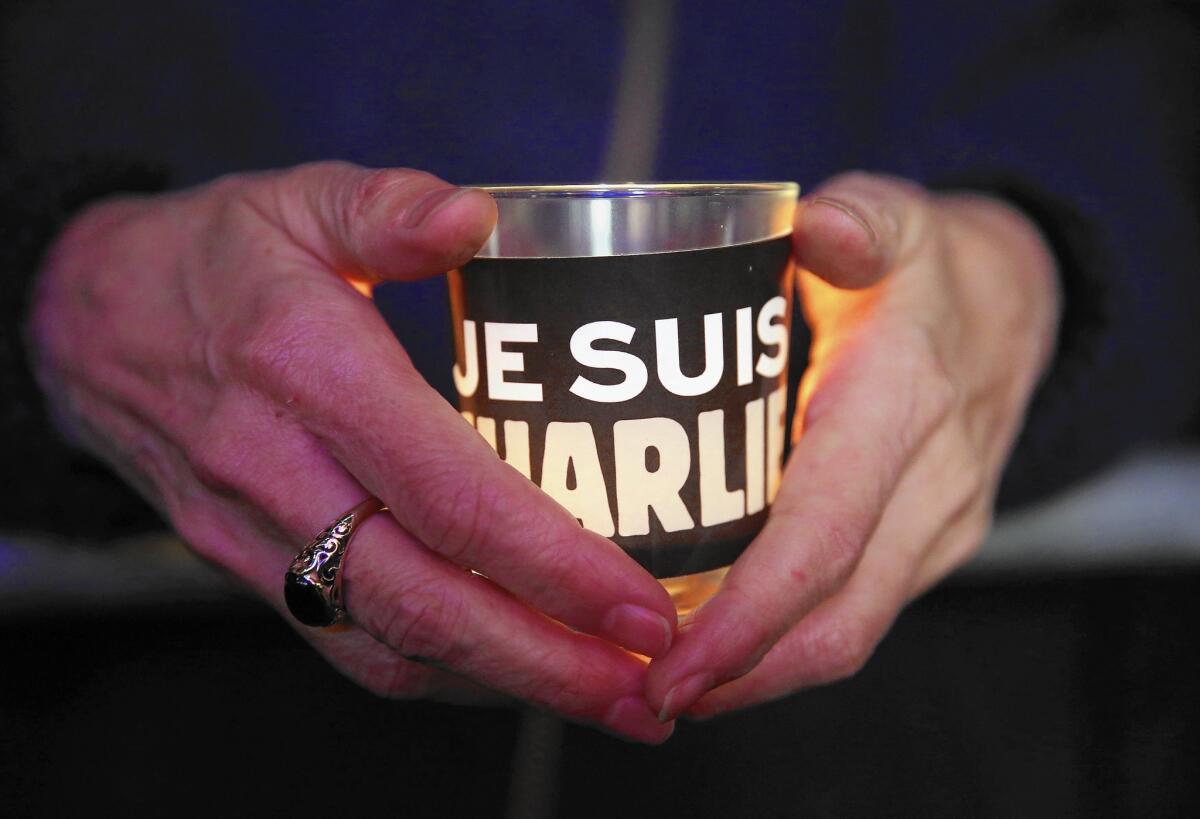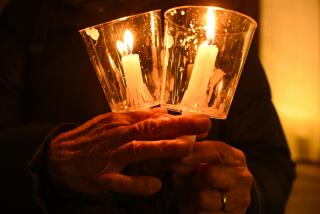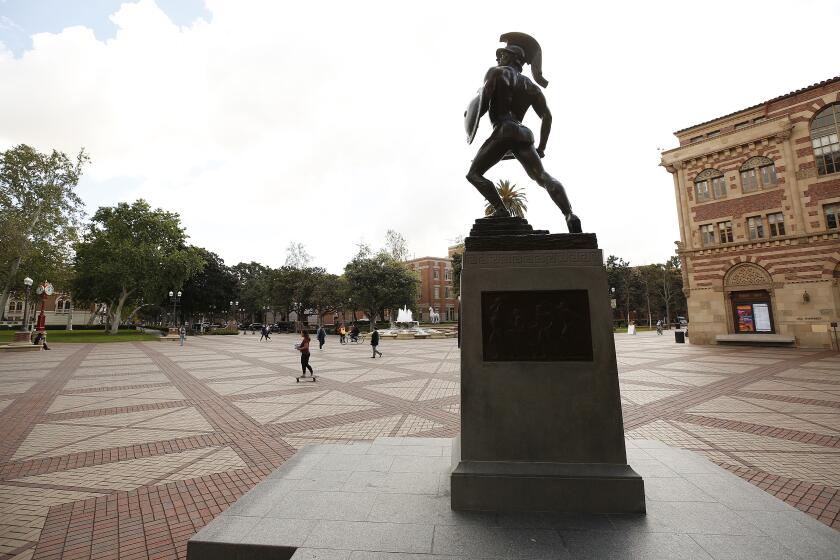Readers React: ‘<i>Je suis Charlie</i>’ isn’t about us vs. them

To the editor: I don’t understand UCLA professor Saree Makdisi’s position on this issue, other than to say that what caused the atrocious attacks in Paris was the divide between Eastern and Western cultures rather than the extremists’ desire to silence the practitioners of freedom of expression. (“How ‘Je suis Charlie’ makes matters worse,” Op-Ed, Jan. 16)
In times of tragedies like the Charlie Hebdo massacre or the 9/11 attack, it is appropriate and necessary for people around the world to express their support for the victims and what they stand for. “Je suis Charlie” expresses support for freedom of speech, just as “We are all Americans” was about supporting liberty and democracy after 9/11.
“Ich bin ein Berliner” did not make the world worse.
Reynaldo Tuazon, South Pasadena
..
To the editor: The “us”/”them” conflict, so insightfully discussed by Makdisi, is essentially the foundation of all major conflict. In a world increasingly connected through technology, it may be time to forgo our small group allegiances and prejudices in favor of a broader view of the ways that we are interconnected.
The National Rifle Assn. likes to say that the only thing that stops a bad guy with a gun is a good guy with a gun. The problem is that everyone thinks that he is the good guy.
The more we vilify our so-called enemies, the more polarized we become and the more hatred is generated. Perhaps a more tolerant and compassionate approach to the “other” would result in more peace.
Kathy Welsh, Claremont
..
To the editor: Makdisi claims that it is “us”/”them”-ist to defend the right to draw a cartoon without being murdered because France has laws against Holocaust denial.
I defend the Charlie Hebdo cartoonists and their right to speak as well as the right of someone to engage in Holocaust denial and rabid anti-Semitism. But we should not pretend that Charlie Hebdo cartoons satirizing Islam (and all other major faiths) are morally equivalent to demonizing a people and saying they have no right to life.
Islam as well as any religion is nothing but an idea. A liberal democracy cannot ban the satirizing of an idea and maintain itself as a liberal democracy. Jews, on the other hand, are a people. Claiming, as a fired Charlie Hebdo cartoonist did, that Jews should die promotes hatred of a people. Both should be legal, but there is no moral equivalence between the two.
And moreover, for those offended by the Holocaust denial laws in France, the proper outlet is to seek to overturn the law, not to murder cartoonists. So yes, Je suis Charlie, and with pride.
Racquel Reinstein, New York
..
To the editor: A serious omission in Makdisi’s otherwise thoughtful piece is that Charlie Hebdo did not satirize or poke fun at the Muslim faith, but rather at those who used it to promote violence, oppress women and generally champion a regressive, anti-democratic version of Islam.
When U.S. cartoonists and comedians make fun of snake-wrestling or Koran-burning evangelical Christians, mainstream Christians do not take offense. This is why so many “mainstream” Muslims marched in the streets holding “Je suis Charlie” signs.
All of us need comic relief from the insanity that is religious fundamentalism. Thank you, Charlie, Colbert, Stewart, “Saturday Night Live,” the Onion and others.
Liz Fautsch, Encinitas, Calif.
Follow the Opinion section on Twitter @latimesopinion
More to Read
A cure for the common opinion
Get thought-provoking perspectives with our weekly newsletter.
You may occasionally receive promotional content from the Los Angeles Times.










